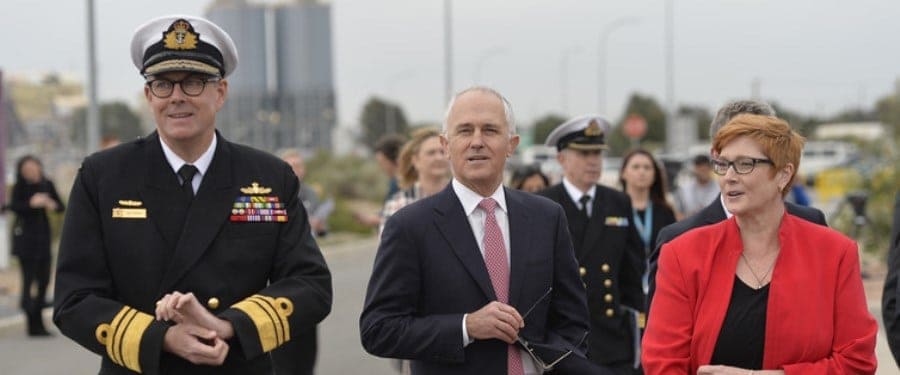The Australian Defence Force (ADF) is to be given a bigger role and greater powers in combating terrorism, under changes announced by the government on Monday.
The measures – including specialised training by special forces for law enforcement teams – will provide more Commonwealth support to state police forces, which are still acknowledged as the appropriate “first responders”.
The changes are designed to assist in preparing for incidents, enabling a more comprehensive ADF response if needed, and improving the flow of information between the ADF and police during an incident.
In their announcement, Prime Minister Malcolm Turnbull and Defence Minister Marise Payne said state and territory police forces remained the best first response immediately after an attack commenced. “But Defence can offer more support to states and territories to enhance their capabilities and increase their understanding of Defence’s unique capabilities to ensure a comprehensive response to potential terrorist attacks.”
Defence will offer to place officers within state law enforcement agencies to help with liaison and engagement. This will assist with “pre-positioning” defence personnel in response to a possible incident.
The Defence Act will be strengthened to remove some constraints governing the “call-out” of the ADF in terrorist situations. This includes removing the current limit on states and territories asking for defence force support and specialist military skills until their capability or capacity has been exceeded.
The government will also strengthen the act to make it easier for Defence personnel to support the police response, such as clarifying their power to “stop and seize” suspects to prevent them leaving the scene of an incident.
“These measures will improve the nation’s ability to respond to terrorism as well as improve the effectiveness of Defence’s contribution to domestic counter-terrorism arrangements,” Turnbull and Payne said. The changes would be made in partnership with state and territory governments, they said.
The government initiated the review of Defence’s support to the national counter-terrorism effort last year in response to the changing nature of the terrorist threat, as shown by attacks overseas. It is the first time the ADF’s domestic contribution has been reviewed since 2005.
The package addresses some of the coroner’s recommendations in the report on the 2014 Lindt cafe siege, in which two victims and the attacker, Man Haron Monis, died. That incident produced calls for a bigger role for the military.
Turnbull and Payne stressed that responses to the terrorism threat must be constantly updated.
The government is currently considering whether there should be a consolidation of the security agencies under a home-office-type ministry that would be headed by Immigration Minister Peter Dutton. There are sharply divided views within government about going down such a route.
Later this week, a version of the review of the Australian intelligence community done by former officials Michael L’Estrange and Stephen Merchant will be released.
By Michelle Grattan, Professorial Fellow, University of Canberra
This article was originally published on The Conversation. Read the original article.
TOP IMAGE: The Defence Act will be strengthened to enable defence personnel to play a bigger role in counter-terrorism. (David Mariuz/AAP – from original article)












